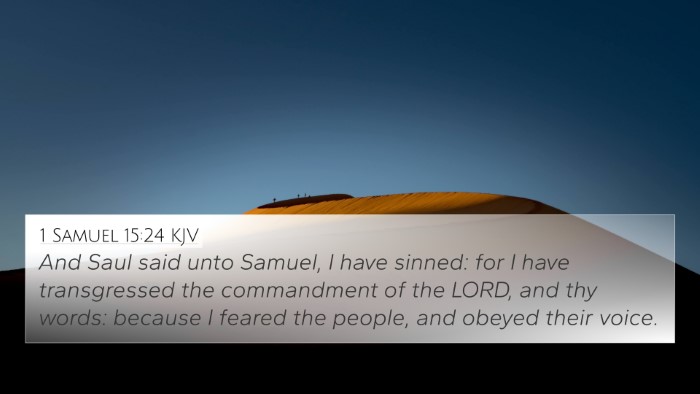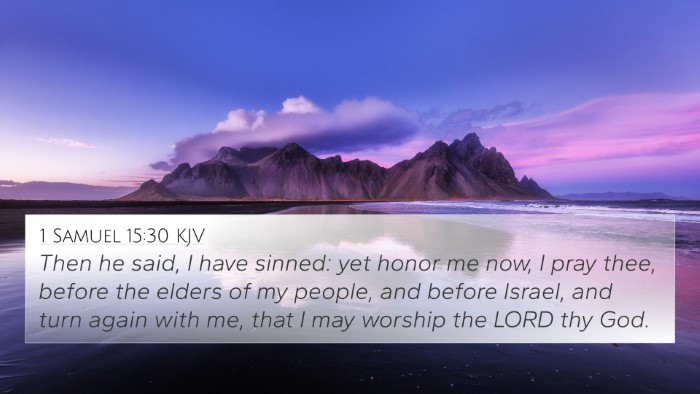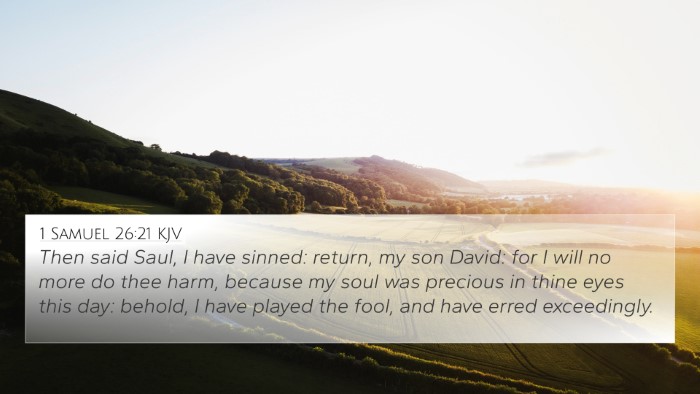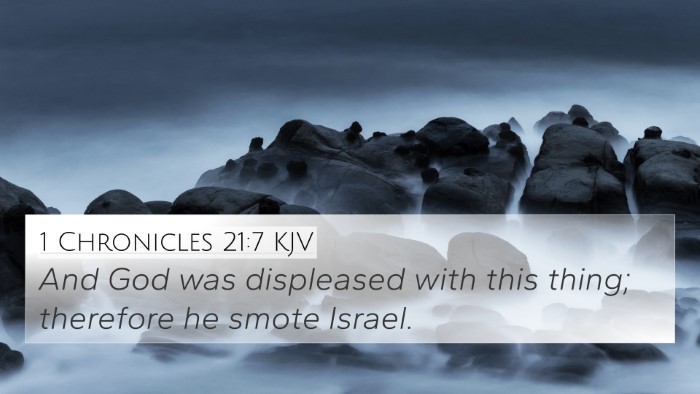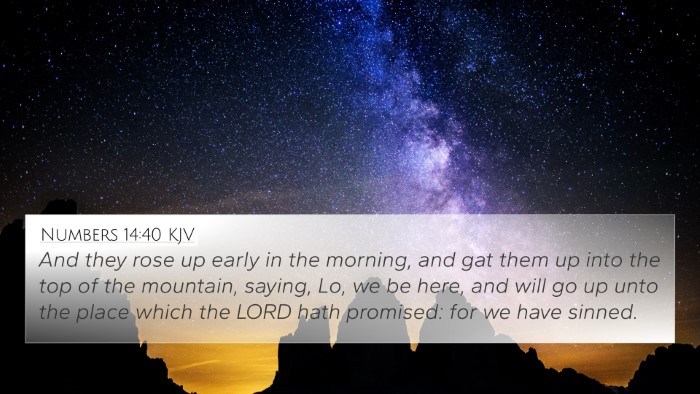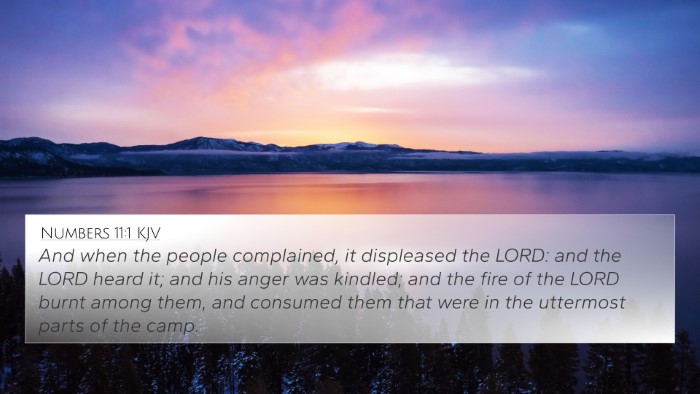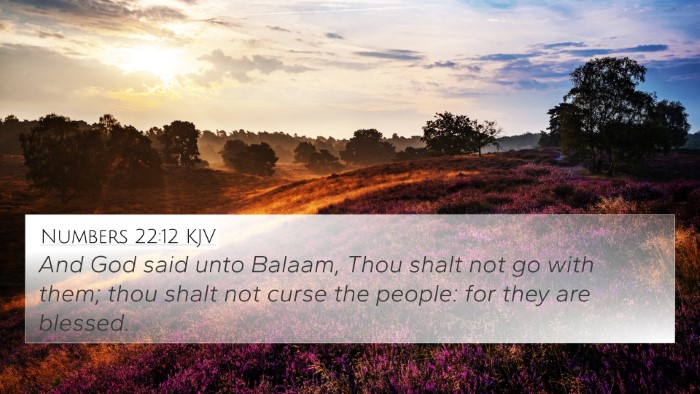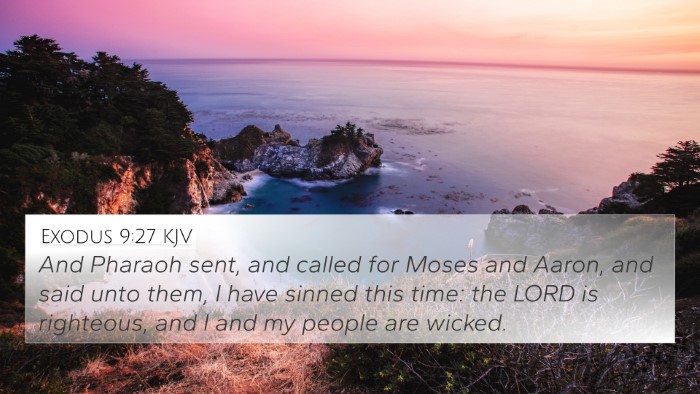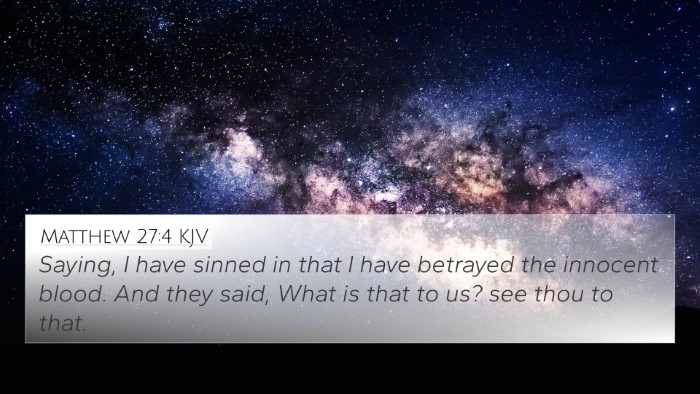Understanding Numbers 22:34
Bible Verse: Numbers 22:34
“And Balaam said unto the angel of the Lord, I have sinned; for I knew not that thou stoodest in the way against me: now therefore, if it displease thee, I will get me back again.”
Summary and Interpretation
This verse captures a pivotal moment in the narrative of Balaam, a prophet whose actions and attitudes raised moral questions. When confronted by the angel of the Lord, Balaam acknowledges his wrongdoing, indicating a moment of humility and repentance.
Commentary Insights
Matthew Henry notes that Balaam, despite his prophetic gifts, exhibited greed and disregard for God's will. This incident serves as a reminder of the serious nature of divine confrontation and the need for humility in one's service to God.
Albert Barnes emphasizes the importance of Balaam's acknowledgment of sin. He highlights that understanding one's faults is crucial for restoration and realignment with God’s purpose. Balaam's willingness to turn back reflects an essential step towards obedience.
Adam Clarke elaborates on Balaam's previous intentions, describing how greed and false gains can cloud discernment. His recognition of the angel signifies a moment where he comprehensively grasps the gravity of his actions and the potential consequences.
Key Themes
- Sin and Acknowledgment: Balaam’s admission of sin demonstrates the necessity of recognizing one’s missteps in the journey of faith.
- Divine Intervention: The appearance of the angel signifies God's proactive role in guiding believers away from peril.
- Repentance: True acknowledgement of sin involves a willingness to change, demonstrated by Balaam's intention to turn back.
Cross-References
This verse can be linked to many others to provide a deeper understanding:
- James 4:6: “But he giveth more grace. Wherefore he saith, God resisteth the proud, but giveth grace unto the humble.”
- Proverbs 28:13: “He that covereth his sins shall not prosper: but whoso confesseth and forsaketh them shall have mercy.”
- 1 John 1:9: “If we confess our sins, he is faithful and just to forgive us our sins, and to cleanse us from all unrighteousness.”
- Isaiah 57:15: “For thus saith the high and lofty One that inhabiteth eternity, whose name is Holy; I dwell in the high and holy place, with him also that is of a contrite and humble spirit...”
- John 14:6: “Jesus saith unto him, I am the way, the truth, and the life: no man cometh unto the Father, but by me.”
- Hebrews 12:1-2: “Wherefore seeing we also are compassed about with so great a cloud of witnesses, let us lay aside every weight, and the sin which doth so easily beset us...”
- Psalms 51:17: “The sacrifices of God are a broken spirit: a broken and a contrite heart, O God, thou wilt not despise.”
Connections Between Bible Verses
To fully appreciate Numbers 22:34, it is essential to view it in the context of other scripture. The narrative emphasizes the consequences of disobedience and the Lord's willingness to guide those who stray. The connection can be made through:
- Understanding the thematic Bible verse connections that emphasize the relationship between divine guidance and human choices.
- Exploring comparative Bible verse analysis through honest repentance illustrated across other Biblical figures, such as David in Psalms.
- Identifying how this verse reflects across the texts in both the Old and New Testaments, showcasing the enduring nature of God’s interaction with humanity.
Application in Study
Utilizing tools for Bible cross-referencing can significantly enhance the understanding of this verse. Here are some methods:
- Employ a Bible concordance to locate related themes and phrases that echo Balaam's experience.
- Utilize a cross-reference Bible study guide to uncover interconnected concepts in similar narratives.
- Explore comprehensive Bible cross-reference materials for in-depth study to uncover layers of theological implications.
Conclusion
In summary, Numbers 22:34 serves as a poignant reminder of the dynamics of sin, repentance, and divine correction. The insights from Matthew Henry, Albert Barnes, and Adam Clarke illustrate the complexity of Balaam’s character and the transformative potential of recognizing one's faults in the sight of God. By leveraging Bible cross-references and exploring the interconnectedness of Scripture, believers can deepen their understanding and enhance their spiritual journeys.




